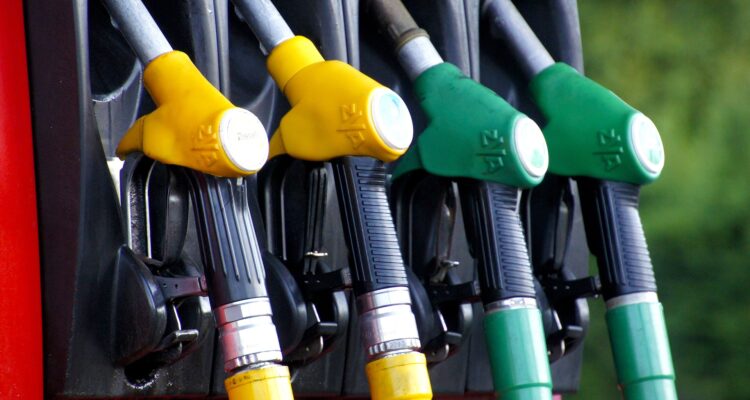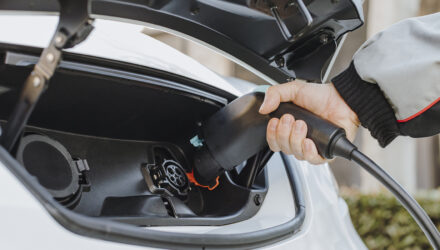It wasn’t long ago that reports were emerging about Jeremy Hunt’s alleged plans to raise fuel duty for the first time in more than a decade, an announcement that would have likely been met with ‘pump price shock’ across the UK.
But while it has recently been confirmed the Chancellor of the Exchequer will not be raising the levy in the Autumn Statement and will extend the freeze on fuel duty at least until March next year, he has merely postponed the issue, not resolved it.
As pointed out by John O’Connell, chief executive of the Tax Payers’ Alliance, the UK still has some of the highest duties on petrol and diesel in Europe, and that the Chancellor should consider making the fuel duty cut permanent to ease the financial burden across the board.
A rise in fuel duty – especially one reaching 55p a litre for both petrol and diesel, as initially projected – would have many implications, especially for households that are already stretching their budgets to cover escalating costs. The strain is real for businesses too. The SME market would feel the pinch more acutely, as smaller businesses often lack the financial safety net that larger corporates might have in place to cushion such fiscal blows.
The freeze may remain in place for now, but the spectre of next year’s Spring Budget brings with it the possibility of delayed but inevitable changes. In an odd case of déjà vu, motorists and businesses are bracing themselves once again for what could be the most significant shift in fuel duty policy in over a decade. For these reasons, there’s a burgeoning demand for greater transparency in pump pricing now more than ever.
We’ve been down this route before. Earlier this year reports emerged about the introduction of a new government-backed scheme aimed at stopping supermarkets and fuel retailers from allegedly overcharging motorists (the announcement came after the CMA revealed that the average supermarket fuel margins rose by 6p per litre between 2019 and 2022). Such a degree of transparent pricing would be welcomed not just by individual motorists, but also by fleet managers and small business owners operating on tight budgets.
With no news yet on when a pump price watchdog may be set up, the call for retailers to publish their fuel prices online is growing louder, driven by the need for motorists and businesses to make informed decisions amidst fluctuating market conditions.
Amidst these fiscal undercurrents, supermarkets have mostly maintained attractive fuel prices, despite a general contraction in savings. A rise in fuel duty, while challenging, could inadvertently enforce a competitive landscape, compelling retailers to vie for the loyalty of cost-conscious consumers.
 For SMEs navigating these potential changes, the strategy is twofold: advocacy and adaptation. On one front, business leaders must band together to advocate for fair practices and policies that do not unduly burden the already strained SME sector. Collaboration with trade associations and chambers of commerce could amplify their voice, ensuring that policymakers are acutely aware of the real-world impact of their decisions.
For SMEs navigating these potential changes, the strategy is twofold: advocacy and adaptation. On one front, business leaders must band together to advocate for fair practices and policies that do not unduly burden the already strained SME sector. Collaboration with trade associations and chambers of commerce could amplify their voice, ensuring that policymakers are acutely aware of the real-world impact of their decisions.
On the other, adaptation would entail a proactive approach to managing fuel expenditures. This includes exploring business fuel cards that offer a no-fee, hassle-free solution, providing access to competitively priced fuel at supermarket forecourts across the UK. For instance, fuelGenie’s own app allows drivers to pre-emptively look up fuel prices at the nearest eligible petrol stations. By leveraging cards such as fuelGenie’s, SMEs can not only benefit from the widespread availability of fuel stations but also enjoy the simplicity of online account management, transaction reviews, and detailed reporting.
So while petrol and diesel owners can enjoy savings at the fuel pumps at least until Spring 2024, the business community should be prepared nonetheless for an eventual increase in fuel duty. If anything, the sustained uncertainty of the fuel market serves as a powerful reminder of the ever-present need for fiscal prudence and strategic planning.
With business fuel cards like fuelGenie’s and a focus on efficient practices, SMEs can weather the storm and emerge resilient, ready to face the challenges and opportunities that lie ahead in the dynamic landscape of UK business.
Author: Tony Burgess, Director – Merchant Network at Worldline UK&I




















